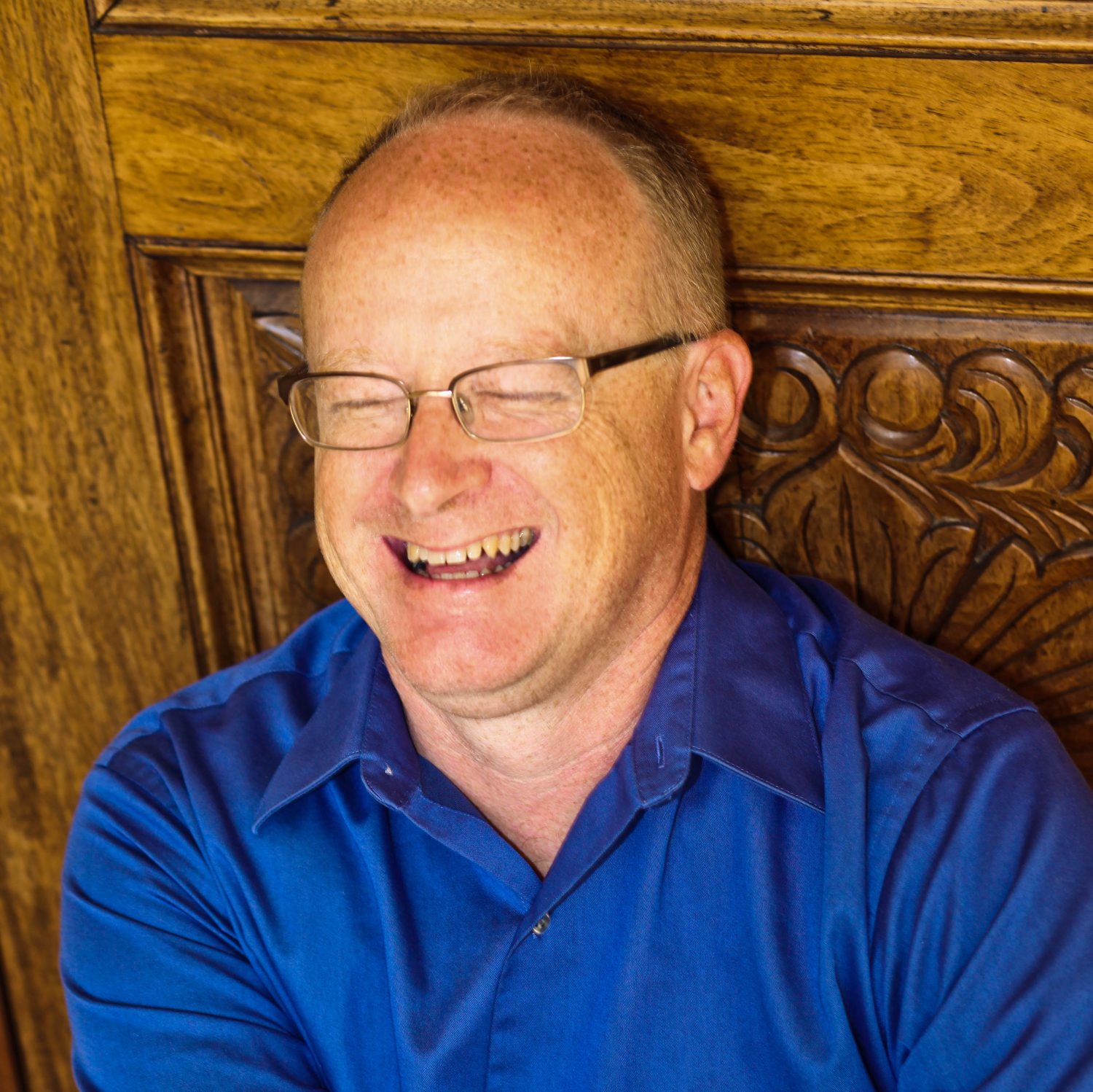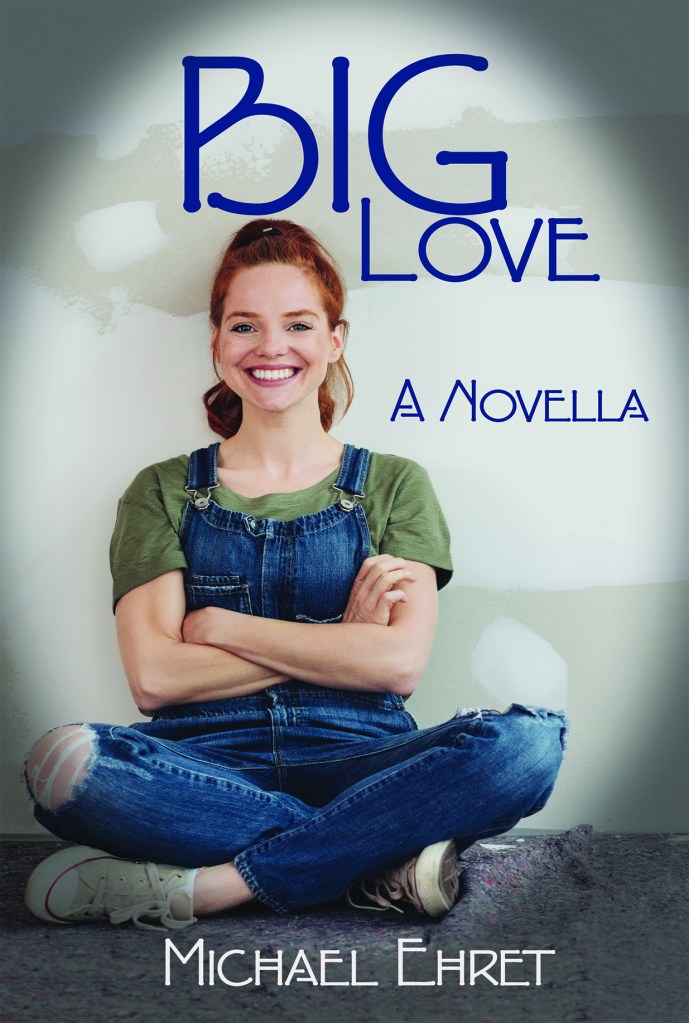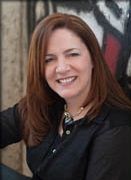A little further down in this post is a great list of new books from ACFW (American Christian Fiction Writers) authors–don’t miss them! But, before you move on, here’s a great review of my current novella, Big Love by author, Terrie Todd:
“I had so many laugh out loud moments reading Ehret’s masterfully-told tale. So many great quotes! My favorite? ‘Sometimes Christianity is trite, because sometimes truth is simple. We are the ones who try to make it difficult.'”
Check out Big Love, if you have the chance. You’ll laugh, you’ll cry, you’ll find big love!
 Berly Charles remembers the days before her father was a successful business tycoon in Indianapolis. Growing up a razor’s edge from homelessness planted a tiny desire for home in her heart that she now, as the owner of La Petite Maison, LLC, fills for others by building their tiny home ideals. Now she has the opportunity to take her tiny house company big time—is this the chance she’s been waiting for?
Berly Charles remembers the days before her father was a successful business tycoon in Indianapolis. Growing up a razor’s edge from homelessness planted a tiny desire for home in her heart that she now, as the owner of La Petite Maison, LLC, fills for others by building their tiny home ideals. Now she has the opportunity to take her tiny house company big time—is this the chance she’s been waiting for?
Nathan “Rafe” Rafferty is a writer for the nationally reputed architecture journal who is used to calling his own shots and covering the biggest and the best architectural accomplishments of the modern world. But when his hipster, much younger, editor assigns him to cover a new trend—tiny houses—the assignment stirs unpleasant memories and thoughts of revenge.
Here are a plethora of new releases for May! More in-depth descriptions of these books can be found on the ACFW Fiction Finder website
Contemporary Romance: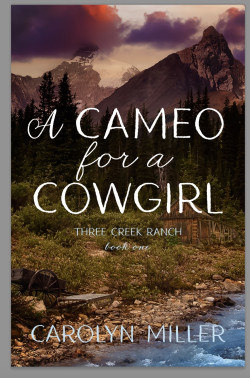
A Cameo for a Cowgirl by Carolyn Miller — Welcome to Three Creek Ranch, home of the James family for over a hundred years, complete with its own Western movie set. Franklin James might be a famous pro hockey player, but just because he’s Cassie’s older brother doesn’t mean she wants to step into the limelight. She’s too busy helping her dad run the ranch and managing the ranch’s movie set, and negotiating with the giant egos of movie stars like Harrison Woods, who’s supposed to be filming the new TV series of As The Heart Draws. And while his TV hero character might be hugely popular, Harrison’s real character is anything but noble. Cassie is convinced he’s hiding something, and she’s determined to make sure it doesn’t reflect badly on Three Creek Ranch. Can she remind him what being a true hero is all about? (Contemporary Romance, Independently Published [ACFW QIP])
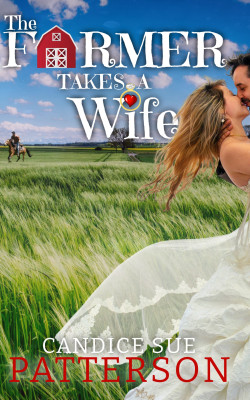
The Farmer Takes a Wife by Candice Sue Patterson — Librarian Gemma Breckenridge hates the spotlight. She’s content in her small town, living alone with books for company and caring for her once famous sister, Cammie, who’s now suffering from a degenerative brain disease. But Cammie’s care is expensive, and when the grant Gemma was counting on is denied, she’s forced to take desperate measures and applies to be a contestant on a reality television show where a wealthy farmer is looking for a love connection. What better place to keep her sister’s identity incognito than a thousand-acre farm in the middle of nowhere, South Dakota? Colby Graham will do anything to save his almost bankrupt farm, even if it means that all of primetime will think he’s incapable of finding a wife on his own. The sponsorships alone should carry his business out of the red, and royalties from the producer will help to keep it there. But choosing a bride from among eight gorgeous strangers is tougher than Colby bargained for. Especially when the one woman he wants isn’t a contestant. With a cast of vivid characters, join the crew in this witty romance filled with drama, heartache, elimination challenges, and fancy luggage full of secrets. Amid the beautiful setting of the Midwest, this tale unravels the tightly bound threads of sacrificial love. (Contemporary Romance, Independently Published [ACFW QIP])

Her Son’s Faithful Companion by Jill Weatherholt — Former barrel racer Caitlyn Calloway wants her son with epilepsy to have everything—even if it means selling her family home. Problem is, the place is in disrepair. Her former crush, service dog trainer Logan Beckett, offers to help. But letting Logan and his dogs into their lives makes the past almost impossible to leave behind…especially when it opens the door to love. (Contemporary Romance from Love Inspired [Harlequin])

Love Overboard by Shannon Sue Dunlap — A snort-laughing, cruise ship romance takes readers into topsy-turvy waters. When a group of four quirky friends retire on a never-ending round of cruises, their attire consists of more than floral shirts and gaudy skirts. Armed with walkie-talkies and battle plans, these relationship experts–who’ve dubbed themselves the “Shippers”–target hostess Lacey Anderson and director Jonathan King in their romantic schemes. But the young couple refuses to cooperate. They’ve been on the “love boat” together before, and it went down in flames. Boss matchmaker Emily Windsor has orchestrated multiple romantic successes, and these two upstarts certainly won’t get the best of her. The chemistry between Lacey and Jonathan is obvious, but the couple rebuffs every outlandish plot and “coincidental” meeting, forcing the matchmakers to chart a new course to true love–all while inadvertently thwarting drug smugglers threatening to ruin their floating home on the ocean. This laugh-out-loud rom-com features loveable characters, over-the-top situations reminiscent of 1950s sitcoms, and a dash of mystery. The toe-curling romance will push the reader overboard and all in with Shannon Dunlap’s new series. (Romance from Kregel Publications)
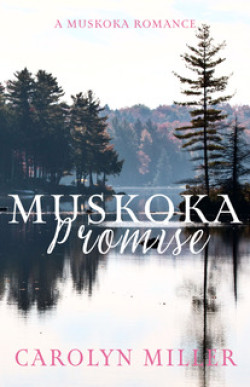
Muskoka Promise by Carolyn Miller — All Anna Morely has wanted since she was a child is to feel loved. All Tom Woodmore has wanted is to uphold the law without fear or favor. When a traffic incident brings these two opposites together, sparks fly. But Anna’s wealthy family has certain social expectations that a humble police officer doesn’t exactly meet. And after the death of his fiancée, Tom has his own challenges in learning to risk his heart again. And then there is the matter of whether Anna will ever reconcile with her too-persistent friends… Join Anna and Tom as they discover the path to real love holds unexpected joys and trials, and that God’s promises can always be relied on – including in beautiful Muskoka. (Contemporary Romance, Independently Published [ACFW QIP])
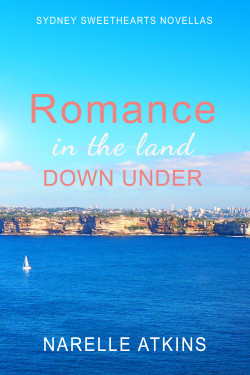
Romance in the Land Down Under by Narelle Atkins — Three sweet and clean Christian contemporary romance novellas that will warm your heart and inspire you to explore the beauty of Australia. Perfect beach reads for lazy summer days. (Contemporary Romance, Independently Published [ACFW QIP])
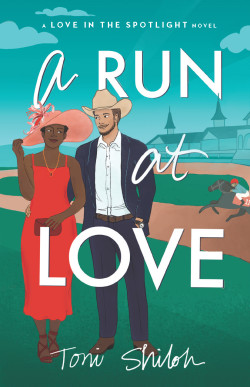
A Run at Love by Toni Shiloh — As a Black woman in a field with little diversity, Piper McKinney is determined to make her mark on the horse-racing world. Raised on a Thoroughbred farm in Kentucky, Piper’s dream is for her horse to win the prestigious Kentucky Derby. With the help of her best friend and trainer, Tucker Hale, she gains national attention but must grapple with the complications that arise when a journalist delves into her past as a transracial adoptee. In an effort to win Piper’s heart, Tucker formulates a plan to train Piper’s horse to victory, hoping to prove himself to her, her parents, and his own self-doubts. Then a shocking scandal hits the media, implicating both Piper and her parents, and she and Tucker will have to survive the onslaught to find their way to the winner’s circle–and each other. (Contemporary Romance from Bethany House [Baker Publishing Group])
General Contemporary and Women’s Fiction:
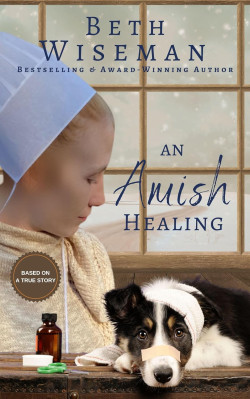
An Amish Healing by Beth Wiseman — Ada Glick enjoys her role as resident veterinarian in her small Amish community. Even though true love hasn’t found her yet, Ada occupies her time by caring for her neighbors’ fur-babies after receiving informal training from a veterinarian in town. When an injured dog shows up unexpectedly on her front porch, Ada tends to him with the care she’s always given to animals in need. During the time she cares for the dog, Ada becomes attached to her furry new friend. Ollie—as she names him—doesn’t have a collar and isn’t well enough to travel, however she knows she must take him to be checked for an identification chip. Is there an owner who is missing him? Jeremiah Huyard has suffered a terrible loss. His family is grieving the deaths of two loved ones, a tragedy that has Jeremiah roiling in grief. When he sets eyes on the beautiful Ada at his relatives’ funerals, he is unexpectedly distracted, but he is also sure he will never see her again. (General Contemporary, Independently Published [ACFW QIP])
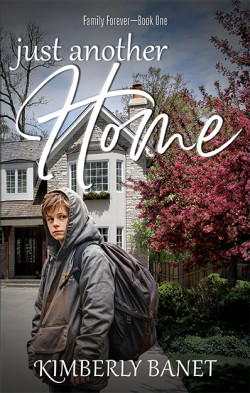
Just Another Home by Kimberly Banet — Sixteen-year-old Sam Keller has lived in foster homes and group homes most of his life and has long ago given up on the dream of a stable, forever family. Adults have always let him down and so has God, and he has no use for either. John and Abbie Grayson are a respected, successful couple in their fifties with two grown children. They live in their dream home in Franklin, TN, an idyllic suburb of Nashville, where John is a successful college basketball coach, and Abbie works part-time at their local church. But Abbie feels something is missing from her life and convinces John they should become foster parents. Their worlds collide when Sam is placed in the Grayson home for a few days. Days turn into months, and Sam thrives with the Graysons and allows himself to dream of a forever family, while John and Abbie realize the teen has found his way into their hearts. As the Graysons begin to investigate the possibility of adopting Sam, an evil agenda emerges, and a secret past is revealed. Nothing short of a miracle can save Sam from a harrowing ordeal and keep the Grayson family together. (General Contemporary from Scrivenings Press)
Historical Romance: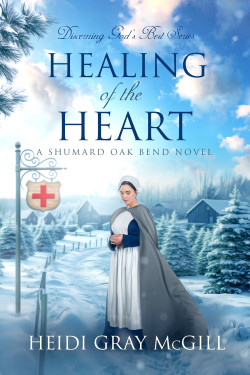
Healing of the Heart by Heidi Gray McGill — Step into the bustling streets of post-Civil War Philadelphia, where cultural injustice and class disparity run rampant. Amidst this chaos, Thomas, an aspiring doctor from the wilds of Missouri, struggles to find his place in a society to which he is unaccustomed. But when he meets debutante Emmaline Whitaker, she teaches him more than the social graces – she holds the key to his future. Only it is the independent, fun-loving Theodora Morse who holds his attention. As Thomas navigates the complexities of high society, he must also confront his inner turmoil. When devastating news comes from home, Thomas is forced to use his waning faith to determine the desire of his heart. Will Thomas stand by his convictions and fight against the malaise of those around him, or will he choose the safety and comfort of his new life? (Historical Romance, Independently Published [ACFW QIP])
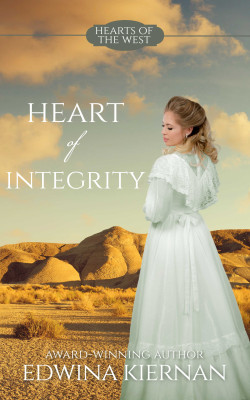
Heart of Integrity by Edwina Kiernan — Ifor Morgan and his father have traveled far from their home in Wales to settle in the small mining town of Lone Pine, California—driven by a need to escape the shame and sorrow of his brother’s fatal scandal. Susan Kelly is starting over, too. Miles from her home in Ireland, she’s determined to build a life for herself in Lone Pine that doesn’t involve any of the deception she was caught up in back home. As Ifor and Susan forge a cautious connection, people from Susan’s past show up in town, entangling her in a fresh web of illegal activity. And when a devastating earthquake throws the town into a state of upheaval, secrets soon shake those least expecting to uncover them. (Historical Romance from Moliant Publishing)
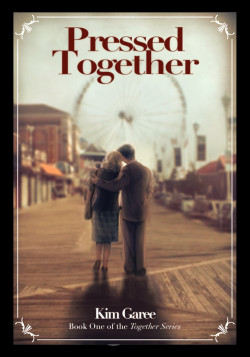
Pressed Together by Kim Garee — Falling for a detective post WW2 at a pier amusement park sounds romantic … unless a childhood sweetheart’s life is being threatened, and keeping him hidden from that detective might mean saving his life! (Historical Romance from Mt. Zion Press)
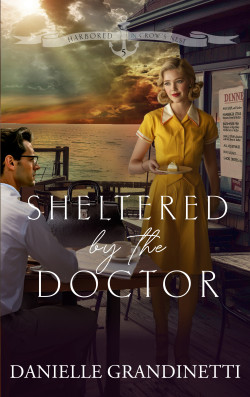
Sheltered by the Doctor by Danielle Grandinetti Mindy Zahn can’t understand why her parents deserted the family farm, leaving her mute younger sister in her care. Until her mother’s cryptic warning to keep her sister safe becomes a life-threatening task. Searching for that elusive something to ease his weary heart, Dr. Nick Matrone is drawn to the cheery Mindy. He would never presume to bring such a sweet woman into his beleaguered past, so friendship is all he can offer. Except, he doesn’t expect needing to save her life. As the danger grows, they both must battle through physical and emotional wounds to have a hope of their counterfeit relationship becoming true.. (Historical Romance from Hearth Spot Press)
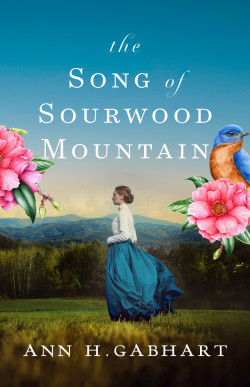
The Song of Sourwood Mountain by Ann H Gabhart — Though the twentieth century dawned with such promise, it is just 1910 when Mira Dean’s hopes of being a wife and mother are dashed to pieces. Her fiancé is dead from tuberculosis and Mira must resign herself to being a spinster schoolteacher. But then Gordon Covington shows up and the doors that once seemed shut forever begin to open—even if only a crack. No longer the boy she knew from school, Gordon is now a preacher who is full of surprises. First, he asks Mira to come to Sourwood in eastern Kentucky to teach at his mission school. Second, he asks her to marry him. Just like that. Though the prospect of stepping onto a new path is scary, Mira takes a leap of faith and lands in a life she never imagined. In this place filled with its own special challenges, the people she serves just might end up becoming the family she always yearned for. (Historical Romance from Revell, a Division of Baker Publishing Group)
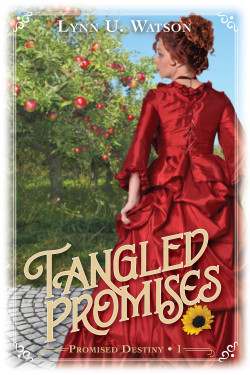
Tangled Promises by Lynn U. Watson — Clara Reinhold’s father publicly pledges her hand to Georg Wolff. His character and arrogance match the stench of his odious cigars, but his lineage offers a suitable alliance for the station of a baron’s daughter. A charades clue years earlier turned friendship into a promise of forbidden marriage between Clara and family carriage driver, Daniel Becker. If she refuses Georg and follows her heart, her father disowns her and she loses everything—her loving family, dear friends, and the only home she’s known. As a tangled web of scandal and deceit unwinds, hidden motives and illicit activities emerge among an unsuspecting ring of players changing everything but nobility’s rules. How will justice be served? How will Clara and Daniel overcome obstacles to claim a future beyond that of a charade?? (Historical Romance from Celebrate Lit Publishing)

Texas Forsaken by Sherry Shindelar — Seven years ago, Maggie Logan (Eyes-Like-Sky) lost everything she knew when a raid on a wagon train tore her from her family. As the memories of her past faded to nothing more than vague shadows, Maggie adapted, marrying a Comanche warrior, having a baby, and rebuilding her life. But in one terrible battle, the U.S. Cavalry destroys that life and she is taken captive again, this time by those who call themselves her people. Forced into a world she wants nothing to do with, Eyes-Like-Sky’s only hope at protecting her child may be an engagement to the man who killed her husband. Enrolled in West Point to escape his overbearing father, Captain Garret Ramsey finds himself assigned to the Texas frontier, witnessing the brutal Indian War in which both sides commit atrocities. Plagued by guilt for his own role, Garret seeks redemption by taking responsibility for the woman he widowed and her baby. Though he is determined to do whatever it takes to protect them, is he willing to risk everything for a woman whose heart is buried in a grave? (Historical Romance from Wild Heart Books)
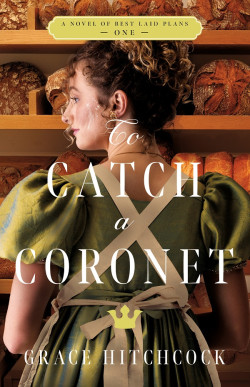
To Catch a Coronet by Grace Hitchcock — Muriel Beau, country baker turned heiress, can’t stop instigating outrage. She discards two arranged engagements, then further antagonizes Kent society by publicly proposing to a baron at a ball. His rejection leaves her with no choice but to flee to the city and to secure a coronet so splendid that her peers will forget her debacles. The glitter of the London courts convinces Muriel that it’s possible to find the future she dreams of, until she finds herself entangled in yet another escapade–one that may cost her more than her crumbling reputation. After years of serving as a privateer under an assumed name, Captain Erik Draycott, heir to Draycott Castle and soon to assume his uncle’s title of Earl, returns to his London home to find it in disrepair thanks to his longtime nemesis. A staunch bachelor intent on returning to his ship, the captain is shocked when his mentor encourages him to take a wife. But while his alleged pauper status causes the potential London brides to turn their noses up at him, the ladies of Kent have no such qualms and are eager to fill his coffers with their fathers’ wealth. Caught in a whirlwind of high society and high seas, Muriel and Erik navigate a risky undertaking that threatens their futures and creating stakes that soar above the masts of Erik’s ship. Will Muriel’s bold charm and Erik’s daring bravery be enough to outsmart the scandal and secure a future as glittering as the crown Muriel seeks? (Historical Romance from Kregel Publications)
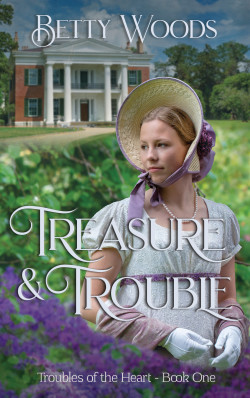
Treasure and Trouble by Betty Woods Eugenia Hampton wants to be loved for who she, not what she has. Her parents intend to see her married and cared for, but she’s determined not to be a mere parlor decoration to show off some man’s achievements. She wants a love match or no match. Paul Stuart is tired of clashing with people over his abolitionist views. Especially with his father, the overseer for Eugenia’s father. He’s saving money to move from Tennessee and buy a farm in Illinois where he can live in peace with people who accept his ideas. Paul rescues Eugenia after her horse throws her. They form a secret, forbidden friendship based on their common family problems. Neither expects their relationship to grow into love. When Eugenia’s father selects a non-Christian man for her husband, she must choose between her known, comfortable life of luxury or a lifetime of love with Paul where little else will be certain. (Historical Romance from Scrivenings Press)
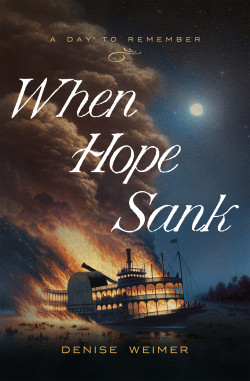
When Hope Sank by Denise Weimer — The Civil War has taken everything from Lily Livingston—her parents, her twin brother, her home. Now she works at her uncle’s inn and keeps her head down. Speaking up for her beliefs proved too costly in a part of Arkansas split by conflicting loyalties and overrun by spies and bushwhackers. Emaciated in body but resilient in spirit, Lieutenant Cade Palmer is crowded onto the Sultana with other paroled Andersonville and Cahaba POWs for the journey north. But a fiery explosion on April 27, 1886, rends the steamer and empties two thousand men into the frigid Mississippi River. Recovering from wounds that might end his career as a surgeon but clinging to his faith, Cade threatens both Lily’s defenses and her heart. How can she tell him she might’ve prevented the tragedy if only she’d reported a suspected saboteur’s claims? And when the man returns to town and encoded messages pass through the hotel, will Lily follow her convictions to prevent another tragedy? (Historical Romance from Barbour Publishing)
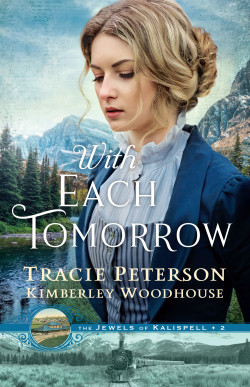
With Each Tomorrow by Kimberley Woodhouse and Tracie Peterson — As the formation of Glacier National Park takes Eleanor Briggs and her conservationist father on a journey west to advocate for public lands, her heart carries the weight of a painful past. Since the death of her mother, she has spent her life traveling the country with her father and helping him with his work, but now he’s considering settling down and writing a book–and she’s not sure what that means for her future. Carter Brunswick faces trials of his own when the Great Northern Railway’s departure threatens his family’s livelihood and the entire town of Kalispell. In the visiting conservationist’s daughter, Ellie, he finds a spirited woman who challenges his convictions in ways he never anticipated, and his own dreams for the future begin to change. When tensions over the railroad’s departure boil over, Ellie and Carter are drawn together on a daring journey that tests the depths of their feelings and their faith in God. (Historical Romance from Bethany House [Baker Publishing Group])
Romantic Suspense:
Finding You by Robin Patchen — When antiquities professor Bryan Wright is tasked with discovering why a band of terrorists might target a museum in Munich, he teams up with the museum’s attractive exhibit designer to study their ancient artifacts. Something in this collection holds special value to the terrorists, and Bryan must figure out which item and why—before enemies get their hands on it. An American living in Munich, Sophie Chapman wouldn’t have expected to be attracted to a musty old antiquities professor—but this guy is neither musty nor old. Even so, she’s not ready for a new boyfriend, considering she hasn’t figured out how to get rid of the old one. When her apartment is broken into, she has bigger worries than the ex who won’t leave her alone. The seemingly random break-in is anything but. Terrorists are closing in, and their plot will destroy more than the romance growing between Bryan and Sophie. It’ll destroy everything they hold dear. (Romantic Suspense, Independently Published [ACFW QIP])
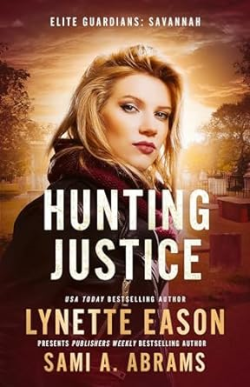
Hunting Justice by Sami A. Abrams and Lynette Eason — Ex-detective and current Elite Guardian Noelle Burton survived a horrifying attack by a serial killer as a child. Now, determined to put the scars of her past behind her, she’s intent on helping the Elite Guardians set up shop in her hometown of Savannah, Georgia. More, she’s wondering if her friendship with Dr. Jonah Harris, an ex-ER doctor turned medical examiner, might be more. But he has his own demons to fight—namely guilt over the death of his wife. So, maybe not. Meanwhile, Jonah can’t ignore the growing desire he feels for Noelle. If only he knew he wasn’t going to destroy their friendship… And then, tragedy strikes—the sudden death of a colleague rocks his world, and Jonah knows that there’s more to the incident than meets the eye. In fact, he may have been the intended target. Now he needs Noelle…not just as a friend, but as a protector. Noelle will have to protect Jonah, while not letting their friendship spark into something more, and Jonah will have to unravel the threat that stalks him. When they stumble upon the chilling possibility of a serial killer lurking in the shadows, all Noelle’s nightmares come back to life. Noelle and Jonah race against time to expose the truth and capture the killer…and when their friendship becomes something deeper, it’s clear they have everything to lose. (Romantic Suspense from Sunrise Publishing)
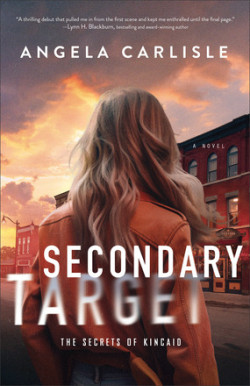
Secondary Target by Angela Carlisle — After the brutal murder of her mother and brother twelve years ago, Corina Roberts built a new life in Kentucky. But when strange things begin to happen, she is thrust into a perilous game of life and death. With nowhere else to turn, her best hope of survival depends on her ex-boyfriend, army veteran Bryce Jessup. Recently returned from service, Bryce has every intention of staying away from Corina, but when threats close in around her, he isn’t willing to leave her safety to chance. As their search for answers uncovers lethal secrets her detective father kept hidden, Bryce and Corina must untangle the mystery of the merciless killer intent on terrorizing and eliminating Corina’s family before it’s too late. (Romantic Suspense from Bethany House [Baker Publishing Group])
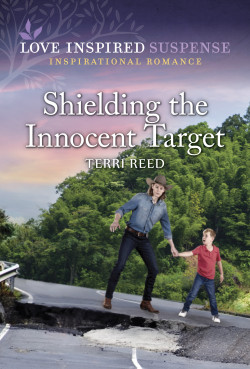
Shielding the Innocent Target by Terri Reed — After witnessing her boss’s murder, Paige Walsh must trust Deputy US Marshal Lucas Cavendish to bring her to safety. But when a notorious assassin targets her and her son, Lucas’s short-term assignment turns into a dangerous cross-country mission. For Paige to identify her boss’s killer, Lucas must get the family into witness protection. Except the hit man knows their every move…and trusting the wrong person could get them killed. (Romantic Suspense from Love Inspired [Harlequin])
Speculative Fiction:

Lady of Basilikas by Ronie Kendig — Under attack from without and within, Jherako teeters on the brink. Vaanvorn Thundred, suddenly in possession of a throne he never expected to inherit, will do anything to pull his kingdom from the edge, even if it means striking a marriage bargain with the formidable Faa’Cris. But a skycrawler opens Vorn’s eyes to realities outside his world, and his limits are tested. Lady Valiriana has one goal when she is sent out from Deversoria: prove this Jherakan king, the one his people call the Errant, unworthy of an alliance with any Faa’Cris. When she exchanges her freedom for that of another, Valiriana finds herself under house arrest—in the king’s house. Determined to take advantage of her proximity, she delves into the depths of the king’s character. What she finds turns her mission on its head. Vorn must decide: break a planet-wide Accord, risking his throne and life, or leave his country—his planet—vulnerable to threats far bigger than he ever imagined. And Valiriana grapples with unpalatable truths as she discovers the king is anything but errant, while her heart, on the other hand, is a different story (Speculative Fiction from Enclave Publishing)
Historical Mystery:
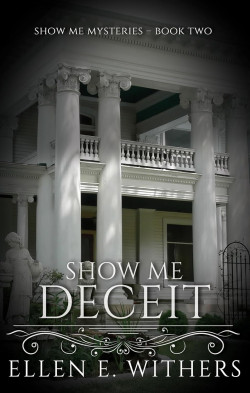
Show Me Deceit by Ellen E Withers — Take a walk back in time with Liesl, Nicole, and Detective Kurt Hunter to solve a contemporary death that may be related to the discovery of bones from the Civil War era. Can Liesl and Kurt work to solve these mysteries and set aside their hard feelings about their former romance? (Historical Mystery from Scrivening Press)
Plus check out these recent additions to Fiction Finder published within the past month:
These Tangled Threads by Sarah Loudin Thomas — Set in the shadow of Biltmore Estate, a poignant tale of friendship, restoration, and second chances. (Historical General)
The Heart Leads West by Joanna Deputy — The Heart Leads West is a story of resilience and trust in the face of upheaval and danger. Unexpected provision and new relationships prove God’s faithfulness even when tragedy threatens to destroy the new future Eliza has worked so hard to secure. (Historical General)
The Bride’s Dilemma by Susan Page Davis — In 1883, Eve Martin arrives in Cheyenne, Wyoming to learn that the man she came to marry is in jail, accused of a violent murder. Should she get on the next eastbound train, or has God brought her here to help save Caleb Blair’s life? (Historical Romance)
Caragin Farm by Renee Hodges — With the Caragin family, we see true faith lived out in authentic – flawed and beautiful – characters as they respond to petulant teenagers, outrage culture, long-buried secrets, past sin, and unexpected life changes with the grace that only God can provide. (General Contemporary)
Ruthie by Sharon Srock — Young love – separated by war in 1970. Separated by life after the war. Reunited 45-years-later. Can they take a chance that love will find them one more time? (Contemporary Romance)
The Rejected Mail Order Bride by Greta Picklesimer — Rose Henderson is running from an ill-fated marriage up north. Can the southern gentleman and self-proclaimed bachelor, Harl Adams, help her find a fresh start without losing his heart to the enticing red-head? (Historical Romance)
Wrestle the Stars by Susan Lyttek — The portal and dinosaur that call Ne-tel are not on land, but on the sea. How can he rescue them when he cannot wrestle the stars? (Speculative Fiction/High Fantasy)
Three Impossible Tasks by Susan Lyttek — With the new ability to create portals, Subja’s scientists unleash vicious and ravenous beasts on the population of Telba. Bern, Garth, Ne-tel are each given separate tasks to complete on their own. Bern must convince Telantia to emerge from the safety of the city and fight for the citizens of Telba. Garth must take technology from Subja’s fortress.Ne-tel must travel to the Gold Coast to raise an army. All three must succeed if Telba is to have hope for a future, but even Prophet Nevv says these tasks are impossible. (Speculative Fiction/High Fantasy)
Sum of All Expectation by Susan Lyttek — Garth, Bern, and Ne-tel are looking for a savior, the prophesied one who will come to free Telba from the grip of the evil one. But in the first world, Garth and Nellie are being tortured, while Ne-tel and Ally have been captured and forced to work as slaves. Bern’s group of refugees battle evil and the elements. Is Telba doomed by the choices of its people? They will need aid that’s greater than the sum of all expectation. (Speculative Fiction/High Fantasy)
Outside Space and Time by Susan Lyttek — The Portal Watchers are separated… Trapped in first world, Garth is given a surprising aid which will assist him upon his return to Telba, while Bern and the Telantian army advance on Subja’s city. And on the Gold Coast Ne-tel leads a meager regiment against the ravenous beasts that have decimated the region. (Speculative Fiction/High Fantasy)
